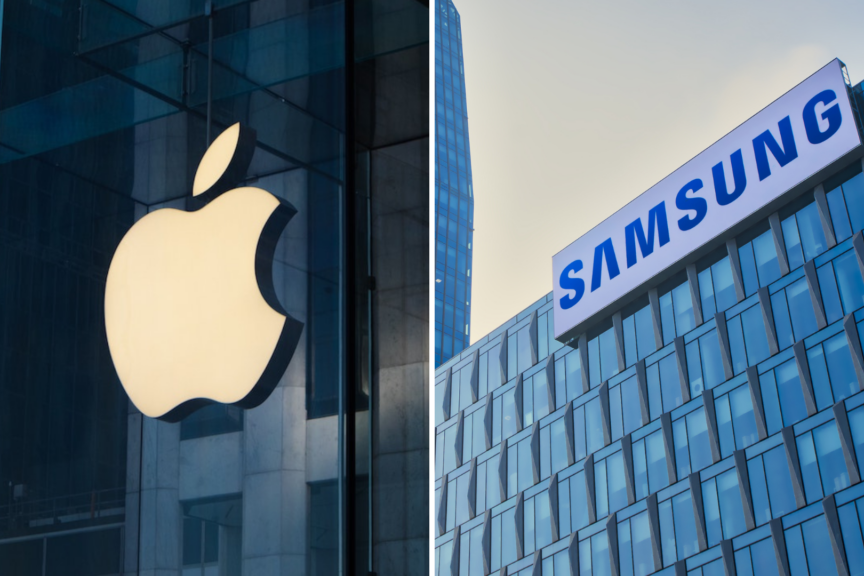In a significant turn of events, Apple has achieved a momentous milestone by surpassing Samsung to become the leader in the global smartphone market. This marks the first time in 12 years that Apple has claimed the top spot, setting a new record for the highest number of smartphone sales.
According to the International Data Corporation (IDC), Apple, headquartered in the United States, accounted for over one-fifth of all phones shipped last year, showcasing a remarkable accomplishment. Following closely behind Samsung were three Chinese phone manufacturers – Xiaomi, OPPO, and Transsion – collectively holding a 19.4% market share.
The smartphone market witnessed a decline in sales due to a considerable number of individuals having already upgraded their devices during the pandemic. IDC reported a more than 3% decrease in smartphone sales, totaling nearly 1.2 billion units sold in the past year. Economic challenges and rising interest rates led consumers to exercise caution in their spending, resulting in the lowest sales figures in a decade. Despite this, experts predict a recovery in the smartphone market in the coming year.
Despite the overall market decline, Apple emerged as the standout performer, selling over 234 million phones in 2017. Nabila Popal of IDC noted, “Not only is Apple the only player in the Top 3 to show positive growth annually, but also bags the number 1 spot annually for the first time ever.” Popal highlighted Apple’s achievement amid regulatory challenges and increased competition from Huawei in China, its largest market.
Huawei, facing restrictions on purchasing chips with US technology, has recently made strides in developing its own processors. Apple’s success is attributed to innovative strategies such as interest-free financing options and trade-in offers for older models, driving demand for high-end devices.
This shift poses challenges for Samsung, a long-standing leader in memory chips, cellphones, and televisions globally. The South Korean electronics giant issued a warning about a faster-than-expected revenue decline due to sluggish demand for consumer electronics worldwide.
Samsung is also contending with competition from more affordable Android devices like Xiaomi and Transsion, gaining popularity in emerging economies and among price-conscious consumers.
IDC foresees an intriguing future for the smartphone industry as additional Android providers enter the market, and consumers prioritize foldable phones with artificial intelligence capabilities. The dynamics of this evolving landscape promise to shape the industry’s trajectory in the coming years.




